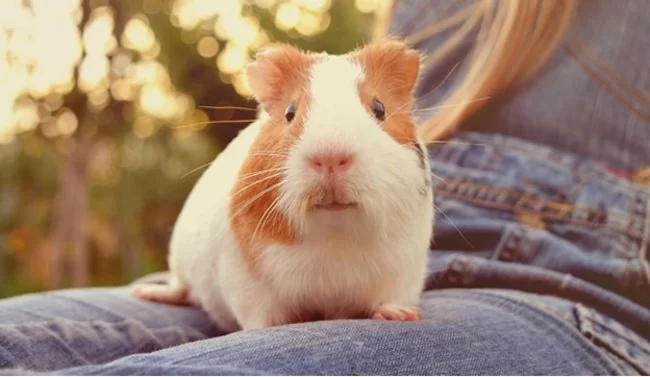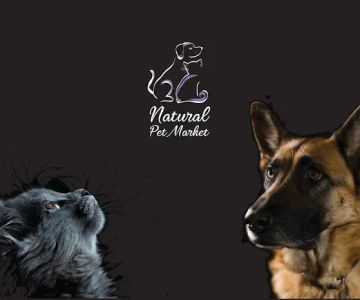- Understanding Fleas on Guinea Pigs
- Natural Methods for Flea Prevention
- Practical Steps to Maintain a Flea-Free Environment
- Case Study of Successful Flea Prevention
- When to Seek Professional Help
1. Understanding Fleas on Guinea Pigs
Fleas can pose a serious problem for guinea pigs, despite their small size and thick fur. These parasites not only cause itching and discomfort but can also lead to more severe health issues such as skin infections or anemia. Unlike dogs or cats, guinea pigs are more sensitive to harsh chemical treatments, which makes natural flea prevention for guinea pigs particularly important.
Fleas thrive in warm, humid environments and often enter a pet’s habitat through contact with other animals or contaminated bedding. Identifying fleas early requires careful observation—look for excessive scratching, red bumps on the skin, or tiny dark specks (flea dirt) in their fur. Understanding these signs is the first step toward effective management.
Natural flea prevention aligns with the guinea pig’s delicate physiology, avoiding potential toxicities associated with chemical insecticides. This approach not only prioritizes the pet’s safety but also creates a healthier living space.
1.1 Why Avoid Chemical Treatments?
Guinea pigs have very sensitive skin and respiratory systems. Many over-the-counter flea treatments designed for dogs or cats contain ingredients harmful to small rodents. Using natural flea prevention methods minimizes risks of allergic reactions or poisoning, ensuring your pet remains healthy and stress-free.
2. Natural Methods for Flea Prevention
Employing natural flea prevention for guinea pigs involves a combination of safe, non-toxic strategies that protect without causing harm. Here are some proven approaches:
2.1 Herbal Flea Repellents
Plants like rosemary, lavender, and neem have natural insect-repelling properties. Creating a diluted herbal spray using these ingredients can be an effective way to deter fleas. Simply mix distilled water with a small amount of rosemary or lavender essential oil, ensuring the solution is mild and suitable for guinea pig use. Spray lightly on bedding and cage surfaces, never directly on your pet without consulting a veterinarian.
2.2 Regular Grooming and Inspection
Frequent grooming sessions help detect fleas early and maintain skin health. Using a fine-toothed flea comb designed for small animals can remove fleas and their eggs. Incorporate this habit into your routine, especially after outdoor exposure or visits to other pet environments.
2.3 Diet and Overall Health
Healthy guinea pigs are less susceptible to infestations. A balanced diet rich in vitamin C supports the immune system, making it harder for parasites to take hold. Additionally, ensuring hydration and clean living conditions complements natural flea prevention efforts.
3. Practical Steps to Maintain a Flea-Free Environment
Beyond treating the guinea pig directly, maintaining a clean environment is crucial for long-term flea control. Flea eggs and larvae often hide in bedding, cage corners, and surrounding areas.
3.1 Frequent Cage Cleaning
Wash bedding and cage liners weekly in hot water to kill any flea eggs or larvae. Vacuuming the surrounding area and furniture near the guinea pig’s habitat also reduces the chance of fleas settling nearby.
3.2 Natural Environmental Treatments
Diatomaceous earth (food-grade) sprinkled lightly around the cage area can help disrupt the flea life cycle. This natural powder is abrasive to fleas but safe for pets when used properly.
3.3 Avoiding Cross-Contamination
If you have multiple pets or guests with animals, always ensure they don’t carry fleas into your guinea pig’s environment. Quarantine new animals and inspect thoroughly before allowing contact.
4. Case Study of Successful Flea Prevention
One of our clients at Hidden Brook Veterinary faced a persistent flea problem with their guinea pig, Willow. Traditional flea medications caused skin irritation, leading to distress and worsened health. After switching to natural flea prevention methods, including herbal sprays and improved cage hygiene, Willow’s flea problem resolved within weeks. This approach not only relieved her discomfort but also strengthened her immune response.
Willow’s story highlights the importance of personalized flea prevention strategies tailored to guinea pigs’ unique needs, reinforcing the benefits of natural treatments.
5. When to Seek Professional Help
Despite the effectiveness of natural flea prevention, some cases require veterinary intervention. If your guinea pig shows signs of severe flea infestation, persistent scratching, or skin infections, professional care is crucial. Experts can recommend safe treatments, provide medical care, and guide you in creating a comprehensive flea prevention plan.
Hidden Brook Veterinary offers specialized services and products designed for guinea pigs, ensuring both safety and efficacy in flea control. Our knowledgeable team can assist you in finding the most suitable solutions for your pet’s well-being.












